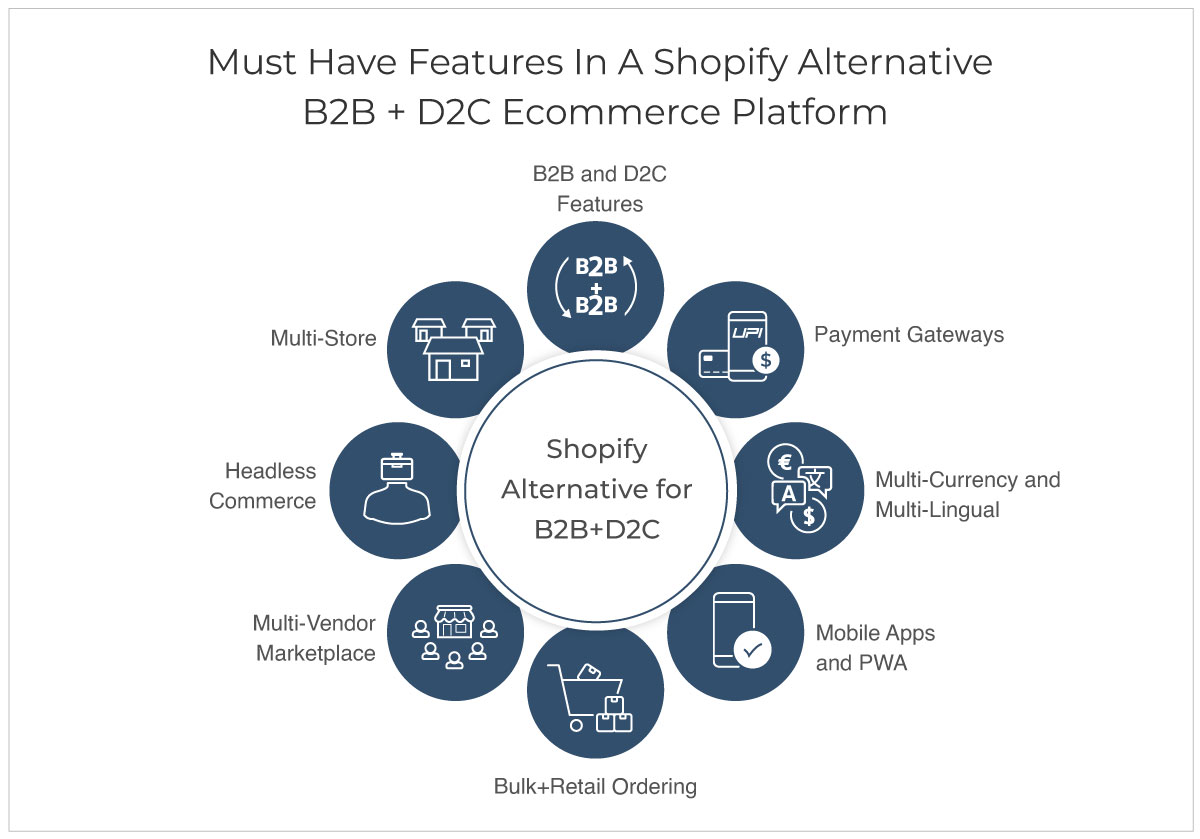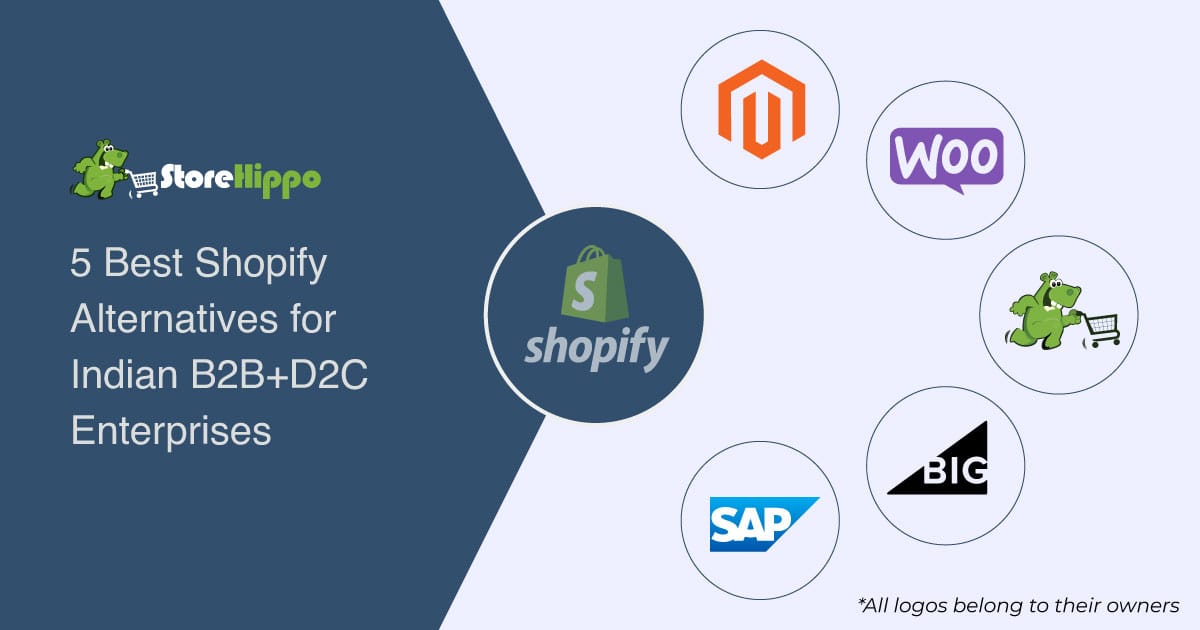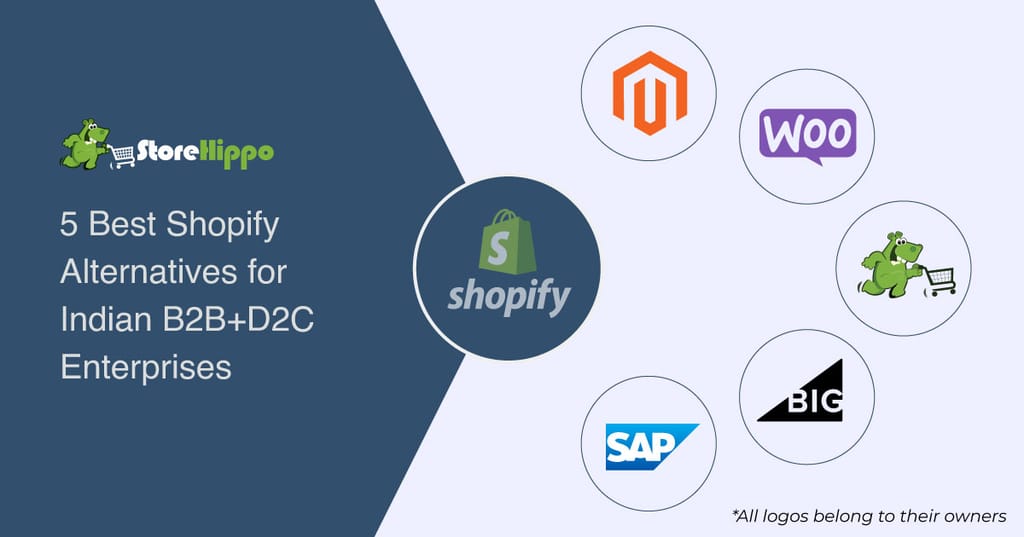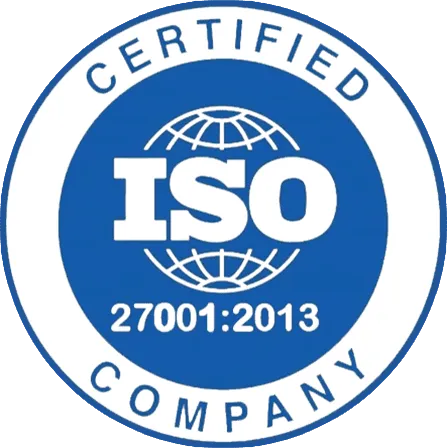As Indian enterprises increasingly explore eCommerce, many face the challenge of efficiently managing both B2B and D2C operations. While Shopify has been a popular choice, its limitations in handling the complexity of these dual models make it less ideal for fast-growing businesses. That's where Shopify alternatives for managing B2B and D2C businesses step in to offer better solutions tailored to the needs of Indian B2B and D2C enterprises.
In this blog, we’ll explore five powerful Shopify alternatives for Indian enterprises that provide seamless, flexible options that can help businesses manage both B2B and D2C operations from a single platform, ensuring smooth workflows and growth.
Before we go into further details, let us first check the non-negotiable features needed to run both business models from a single ecommerce platform.
8 Must-Have Features in Your Shopify Alternative B2B + D2C Ecommerce Platform for India
The best Shopify alternatives for D2C brands and B2B companies should not only offer enhanced flexibility but also the scalability needed to keep up with rapid growth, enabling businesses to meet the evolving needs of their customers seamlessly.
To manage both B2B and D2C operations effectively, your eCommerce platform needs essential features that are capable of handling the complexities of each model.

Here are 8 non-negotiable features for your Shopify alternative.
1. Comprehensive B2B and D2C Features
Built-in B2B features like tiered pricing, RFQ, and bulk ordering, along with D2C essentials such as personalized recommendations and offers, are crucial to managing both business models from a single platform.
2. Multi-Store Feature for B2B and D2C
The platform should be capable of creating separate stores for B2B and D2C customers under a unified platform. This allows you to customize user experiences, pricing, and product catalogs based on each customer type, enhancing operational efficiency and engagement.
3. Headless Commerce for Flexibility
A robust shopify alternative for B2B and D2C businesses should have a headless commerce setup which allows businesses to create custom front ends for B2B buyers and D2C customers, delivering tailored experiences while ensuring speed and scalability.
4. Multi-Vendor Marketplace Capabilities
A comprehensive marketplace solution to effortlessly manage multiple suppliers or vendors for both B2B and D2C operations with built-in marketplace support, enabling you to scale and streamline vendor management from one interface.
5. Bulk Ordering and Retail-Friendly Features
Your chosen platform should have bulk ordering capabilities to handle large B2B orders while providing D2C customers with retail-friendly features like quick checkout, wish lists, and promotions.
6. Mobile-First with Mobile Apps and PWA Support
The Shopify alternative for Indian enterprises with B2B and D2C businesses should ensure smooth mobile experiences with a mobile-first platform that includes PWA capabilities, allowing both B2B and D2C customers to enjoy fast, app-like experiences on any device. It should also have capability to build mobile apps for both sets of buyers.
7. Multi-Currency and Multi-Lingual Support
The platforms that you consider should seamlessly cater to cross-border B2B and D2C customers with multi-currency and multi-lingual features, ensuring smooth transactions and localized shopping experiences.
8. Integrated Payment Gateways
Your chosen Shopify alternative should offer flexible payment options tailored to B2B buyers (credit, bank transfers) and D2C customers (digital wallets, UPI), ensuring smooth, secure transactions across both segments.
Table of Contents
- 8 Must-Have Features in Your Shopify Alternative B2B + D2C Ecommerce Platform for India
- 1. Comprehensive B2B and D2C Features
- 2. Multi-Store Feature for B2B and D2C
- 3. Headless Commerce for Flexibility
- 4. Multi-Vendor Marketplace Capabilities
- 5. Bulk Ordering and Retail-Friendly Features
- 6. Mobile-First with Mobile Apps and PWA Support
- 7. Multi-Currency and Multi-Lingual Support
- 8. Integrated Payment Gateways
- Top 5 Shopify Alternatives For Indian Businesses B2B + D2C eCommerce Set Up
Top 5 Shopify Alternatives For Indian Businesses B2B + D2C eCommerce Set Up
Struggling to manage both B2B and D2C operations on Shopify? Here are the top 5 Shopify alternatives for Indian businesses, designed to simplify and streamline your dual eCommerce setup with ease.
1. StoreHippo: The Superior Solution for B2B + D2C eCommerce
StoreHippo stands out as the ultimate platform for Indian enterprises looking to manage both B2B and D2C eCommerce seamlessly. Designed to meet the unique needs of businesses operating in diverse segments, StoreHippo’s architecture and features are built specifically to handle the complexities of both business models from a single platform. Whether you need advanced B2B features like bulk ordering and custom pricing or D2C capabilities like personalized storefronts and direct customer engagement, StoreHippo delivers it all out of the box.
Pros:
- Unified platform with built-in capabilities for managing both B2B and D2C operations.
- Custom pricing, RFQ management, and bulk ordering for B2B.
- Headless commerce architecture for deep customization and scalability make it a popular Shopify alternative for Indian enterprises.
- Native multi-store setup to manage separate B2B and D2C stores from a central admin.
- Multi-vendor marketplace support for easy vendor management.
- Mobile-first design with built-in mobile apps builder and PWA stores for fast, app-like experiences.
- Multi-currency and multi-language support for global or pan-India operations.
- Integrated payment gateways and logistics solutions for seamless transactions.
- Seamless integrations with third-party tools and 120+ pre-integrated partners for logistics, payment gateways, marketing, accounting, and more.
- 300+ native enterprise-grade features
Cons:
- Advanced B2B and D2C features are only available on higher-tier plans.
- Advanced customization may require additional costs decided on a pro-rata basis.
2. Magento: Powerful Customization for Large Enterprises
Magento is a powerful platform that provides high levels of customization, making it a solid choice for large B2B planning to go into retail and looking for the best Shopify alternatives for D2C brands. However, it often requires significant development and technical resources to operate effectively. Magento offers great flexibility in managing both business models but falls short in providing out-of-the-box features for Indian enterprises looking for a faster and more scalable solution.
Pros:
- Extremely customizable for businesses with in-house development teams.
- Strong B2B capabilities like multiple price lists and complex product catalogs.
- Has the multiple storefronts feature for different customer segments (B2B and D2C) under one platform, making it easier to manage diverse business models and proving to be a good Shopify alternative for B2B+D2C.
- Scalable solution for large enterprises with substantial budgets.
Cons:
- High development and maintenance costs.
- Requires a steep learning curve and technical expertise.
- Reliant on third-party plugins for essential features like mobile apps and multi-vendor support.
- Platform becomes slow and buggy as the size of the business grows.
3. BigCommerce: Easy to Use but Limited in Flexibility
BigCommerce offers a user-friendly interface with built-in B2B and D2C features, making it appealing Shopify alternative for mid-sized businesses. However, it lacks the flexibility and scalability of platforms like StoreHippo when it comes to handling complex business models like multi-vendor or multi-store setups. It’s a decent alternative for enterprises that prioritize ease of use over deep customization.
Pros:
- User-friendly platform with a quick setup process.
- Built-in B2B features like customer segmentation and price lists.
- Allows for detailed customer segmentation with specific pricing for B2B and D2C customers, ensuring tailored pricing strategies.
- Seamless integration with marketplaces like Amazon, eBay, and social platforms, making it easier to sell across both B2B and D2C channels.
- Smooth integration with popular payment gateways and logistics providers.
Cons:
- Limited customization compared to other platforms.
- Does not support multi-vendor setups natively.
- Add-on costs can escalate as the business scales.
- Lack of mobile commerce solutions offered by othered platform in this range.
4. WooCommerce: Affordable but Plugin-Dependent
WooCommerce is a popular eCommerce platform for small to mid-sized enterprises running on WordPress. While it is highly affordable and easy to use for D2C, though it struggles to handle the complexities of B2B operations without relying on multiple third-party plugins. Though not the best Shopify alternative for B2B, it has been used by enterprises for its affordability and plugins which can be worked around for B2B.
Pros:
- Affordable option for small businesses looking to reduce costs.
- WooCommerce’s vast plugin library allows brands to easily add B2B-specific features like bulk ordering, tiered pricing, and customer segmentation.
- Offers the flexibility to customize the checkout experience for both B2B and D2C customers, accommodating different payment terms or workflows.
- Extensive plugin library allows for feature expansion.
- Strong content management capabilities for D2C.
Cons:
- Heavy reliance on third-party plugins for B2B features stop it from being the best Shopify alternative for Indian enterprises running multiple business models.
- Performance can suffer as more plugins are added.
- Lacks built-in multi-vendor and multi-store support.
5. SAP Commerce Cloud: Robust but Complex
SAP Commerce Cloud is designed for large-scale enterprises that need a fully integrated solution for managing both B2B and D2C operations making it one of the best Shopify alternatives for B2B and D2C ecommerce. Its integration with SAP’s ERP and CRM systems makes it ideal for businesses already invested in the SAP ecosystem. However, its complexity, high cost, and long implementation times make it less accessible for mid-market businesses or enterprises looking for rapid scalability.
Pros:
- Seamless integration with SAP’s suite of business tools.
- Strong support for complex B2B processes like configurable products and bulk orders.
- Scalable for large enterprises with significant technical resources.
- SAP Commerce Cloud enables a seamless customer experience across multiple channels, allowing brands to manage B2B and D2C sales on web, mobile, and in-store platforms efficiently.
- With deep integration into SAP’s data tools, the platform provides powerful analytics, enabling data-driven decisions for both B2B and D2C strategies making it a good Shopify alternative for Indian enterprises.
Cons:
- Expensive to implement and maintain.
- Complex setup and longer time-to-market.
- Over-engineered for businesses not already using SAP solutions.
Conclusion
While Shopify has its strengths, especially for simple D2C operations, Indian enterprises running both B2B and D2C eCommerce need more flexible, scalable platforms that can handle the complexity of both models. StoreHippo shines as the best Shopify alternative for B2B and D2C brands, offering powerful out-of-the-box features tailored to the needs of B2B and D2C enterprises alike. With its headless commerce architecture, mobile-first design, and comprehensive B2B features, StoreHippo allows businesses to streamline both wholesale and direct-to-consumer operations seamlessly.
If you’re looking for a solution that scales with your business and supports both B2B and D2C from a single platform, StoreHippo is the ideal choice. Ready to grow your B2B and D2C ecommerce business with a smarter Shopify alternative? Explore StoreHippo’s fully hosted and managed eCommerce solutions, start your 14 day free trial now.





















Leave A Comment